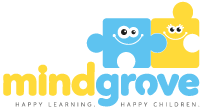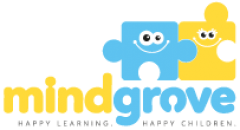7 Amazing Benefits of Preschool Education for Toddlers
Preschool education plays a crucial role in laying the foundation for a child’s future success. While many parents recognize the importance of early education, there are still some who may question its significance. In this blog post, we will delve into seven amazing benefits of preschool education for toddlers, backed by statistics from reputable sources.
Social Skills Development
Preschool serves as an early socialization platform, exposing toddlers to various social interactions. According to a study by the National Institute for Early Education Research (NIEER), children who attend preschool demonstrate improved social skills compared to those who do not. Preschool provides a structured environment for toddlers to learn how to share, cooperate, and communicate effectively with their peers.
Cognitive Development
The early years of a child’s life are crucial for cognitive development. The Perry Preschool Project, a renowned longitudinal study, found that children who attended high-quality preschool programs showed better cognitive abilities, including problem-solving and critical thinking skills. Preschool activities stimulate a child’s curiosity and foster a love for learning, laying the groundwork for academic success.
Emotional Regulation
Preschool provides a safe space for toddlers to explore and understand their emotions. The Center on the Developing Child at Harvard University reports that early childhood experiences, including those in preschool, significantly impact emotional regulation skills. Through activities and interactions, toddlers learn to manage their emotions, fostering emotional intelligence that will benefit them throughout their lives.
Language Development
The National Early Literacy Panel’s research underscores the positive impact of preschool on language development. Exposure to a rich language environment in preschool enhances vocabulary and language skills, preparing toddlers for a smoother transition into formal education. The benefits extend beyond language, positively influencing literacy and communication skills.
Cultural Awareness
Preschools often promote diversity and inclusion, exposing toddlers to various cultures and backgrounds. According to a report by Child Trends, early exposure to diversity contributes to the development of cultural awareness and empathy. Preschools create an environment where toddlers learn to appreciate differences, fostering a sense of belonging and respect for others.
Motor Skills Enhancement
Physical activities in preschool contribute to the development of fine and gross motor skills. The American Academy of Pediatrics emphasizes the importance of physical play in early childhood education. Preschool activities such as drawing, cutting, and outdoor play help toddlers refine their motor skills, supporting overall physical development.
Parental Involvement and Support
Preschools encourage parental involvement, creating a collaborative relationship between parents and educators. The U.S. Department of Education reports that parental involvement positively influences a child’s academic success. Preschools often organize events, workshops, and conferences that facilitate communication between parents and teachers, ensuring a holistic approach to a child’s development.
Conclusion
Investing in preschool education for toddlers is a wise decision with far-reaching benefits. The statistics and findings discussed above highlight the profound impact that preschool can have on a child’s social, cognitive, emotional, and physical development. As parents, educators, and society at large, it is crucial to recognize the pivotal role that preschool education plays in unlocking the full potential of our youngest learners.


